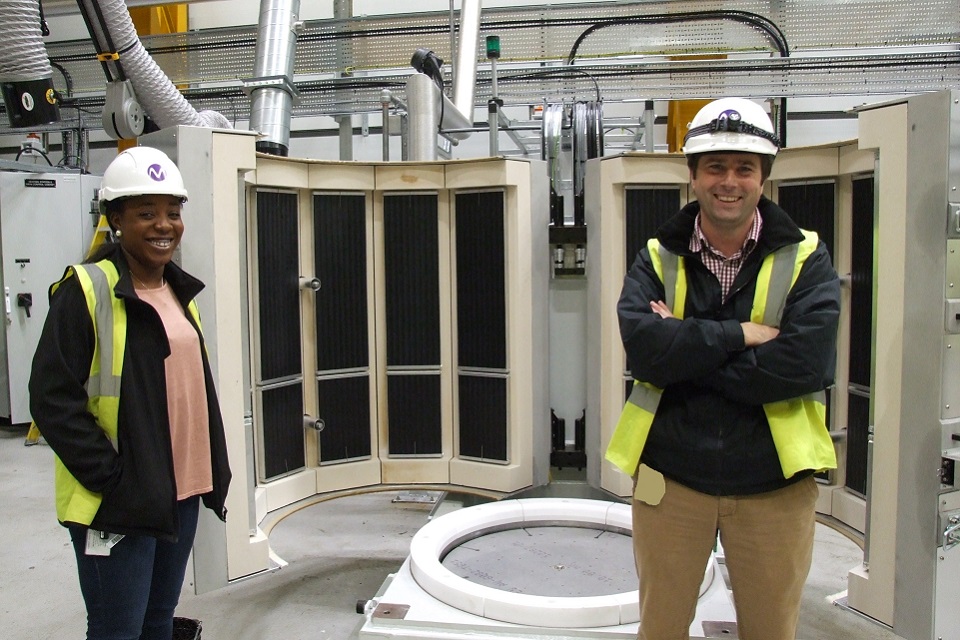TSP Engineeering Ltd and Cavendish Nuclear will supply containers for decommissioning the Magnox Swarf Storage Silo (MSSS).
The 50-tonne containers will be used to move radioactive material from the MSSS to newly constructed treatment and storage facilities on the site.
Built in the 1960s, the MSSS is made up of 22 compartments – each big enough to fit 6 double decker buses inside – which store waste from the UK’s first generation of nuclear power stations.
It was originally constructed without plans for how the waste would eventually be taken out. Now, more than half a century later, the building is no longer suitable for storing the waste long-term.
TSP Engineeering Ltd and Cavendish Nuclear will supply the containers, which will be manufactured using UK-sourced steel.
A total of 15 of the shielded transport packages will help to finally decommission and clean up the MSSS which is one of the Nuclear Decommissioning Authority’s (NDA) highest priority projects.
In the first stage of the project, worth approximately £3 million to each company, both firms will manufacture a single package for testing.
Martin Chown, Sellafield Ltd’s Supply Chain Director, said:
At Sellafield, we are dedicated to cleaning up our legacy facilities as safely, quickly and cost-effectively as possible.
At the same time, we want to make sure our local communities, and the UK as a whole, experience the social and economic benefits of all our procurements.
I’m delighted that the contract has gone to 2 UK-based companies. The fact that one is based close to our site in West Cumbria shows the strength of the nuclear supply chain in the region.
Ron Gorham, Head of Supply Chain for the NDA, said:
This agreement marks an important step forward, not just for Sellafield as it begins to clean out one of its most hazardous facilities, but also in underlining the important contribution of the supply chain both locally and for the UK.
Three machines are currently being constructed above the compartments which will move along the building clearing out the waste – it will then be transferred to new buildings at Sellafield for treatment and interim storage, ahead of final disposal in a UK Geological Disposal Facility.
Find out more about radioactive waste
